Fate Deals the Card of Death
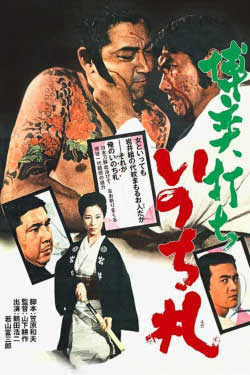
Director: Kôsaku
Yamashita
Year: 1971
Rating: 7.0
The film begins with a man making a loyalty oath
to a Yakuza clan. The clan is more important than my family, my lover, my
parents. I will sometimes have to kill for my Clan. I may have to sacrifice
my life for my Clan. The Clan is my family. This sense of loyalty and obligation
drives the complicated relationships and actions in this Showa Era Ninkyo
Eiga that is much more of a melodrama than action oriented. It might go against
expectations. Most of the films in this genre are built around honor and
obligations but are interspersed with smaller violent action scenes leading
to the grand finale and settling of debts at the end of a sword. These are
orgasms of blood-filled splattered rooms that the viewer has been waiting
for. This film is obstinately stubborn in avoiding action through the film.
It is almost a tease as the film walks right up to the border of violence
and then reluctantly steps back. Loyalty to the boss and the larger Clan
stops them from taking that final step. Till the end. Then it delivers what
everyone has been waiting for in a literally phantasm blood soaked room that
takes an artistic twist as if Seijun Sukuzi had stepped in to direct the
finale.
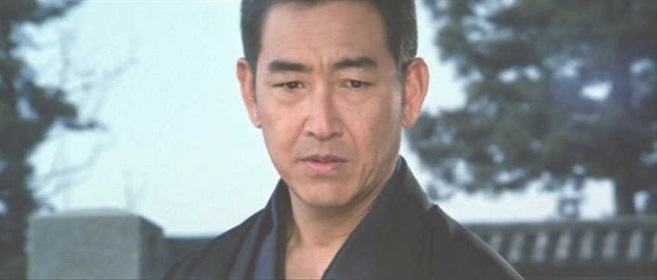
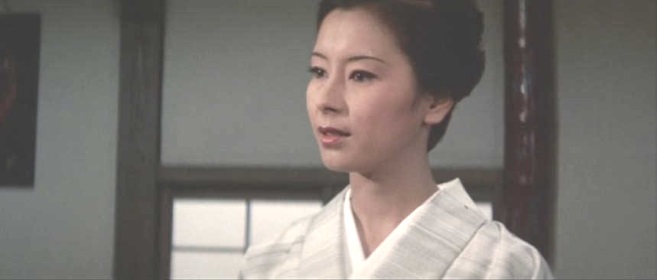
Seijiro (the always reliable Koji Tsuruta)
is falling in love with a female performer in a traveling troupe. Her specialty
is playing Tange Sazen with his one-eye. Love comes quickly before he is
able to tell her what his profession is. Are you a stockbroker or a fish
monger she asks. No. I often have to do bad things. But Shi-chan (Michiyo
Yasuda) doesn't care. He tells her he wants to marry her in a year but he
has to go to Tokyo to take care of some business. The business of killing.
He is second in command of the Iwai group which is a sub-group of the Sakurada
Group. The head of the Iwai Group is his good friend Iwai. The two of them
built up the group, have a territory and a reputation. A vicious independent
group is moving in on their territory and Seijiro asks them politely to leave.
Then the knives come out and he is sentenced to five years in jail. He writes
a letter to Shi-chan not to wait for him.
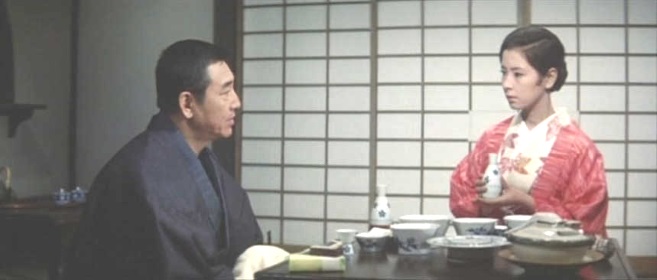
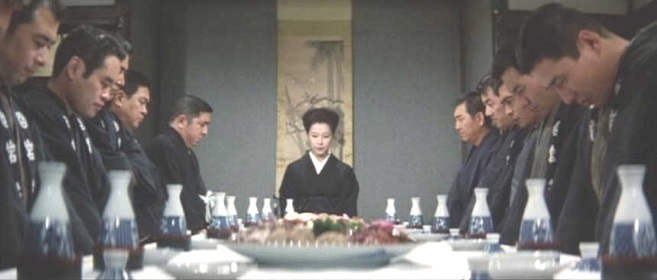
She doesn't. Her family needs financial
help and she accepts the offer of marriage to the head of a Yakuza Clan.
Yes. Of all the Yakuza Clan leaders in Japan she marries Iwai. Iwai not knowing
about her relationship with Seijiro and she not knowing that he is number
two in the Clan. The melodrama builds when Iwai is assassinated and Seijiro
gets out of jail and takes over the Clan. They can't reveal their former
relationship for the shame it would bring and the head of the Sakurada Group
is conspiring with the independent group to ease the Iwai out because he
fears they are becoming too powerful. Shi-chan becomes the titular head and
wants to avoid violence.
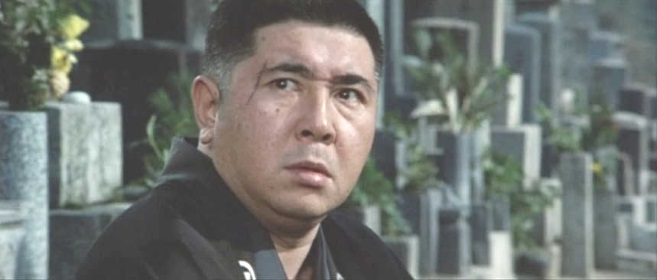
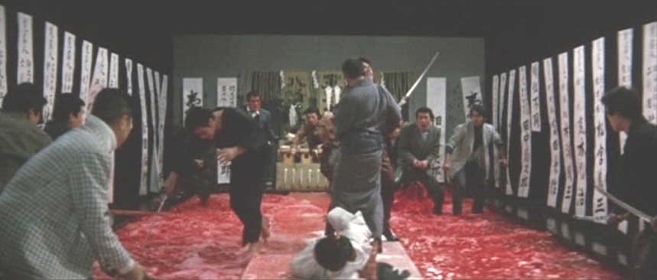
But violence has a way of reaching out.
Of finding you if you live this life. The enforcer of this Clan is Kanji
played by a gruff impatient Tomisaburô Wakayama and his relationship
with Seijiro gets out of kilter as they disagree about what needs to be done.
Watching the interplay of the Clans, the betrayals, the loyalty, the various
Clan members, the broken sake cups as a sign of leaving the clan is fascinating
to watch. Tsuruta as usual plays everything low-key rarely showing any emotion.
It's there but he keeps it undercover. Beautifully shot by director Kôsaku
Yamashita who directed a number of the Red Peony Gambler films with Junko
Fuji.







